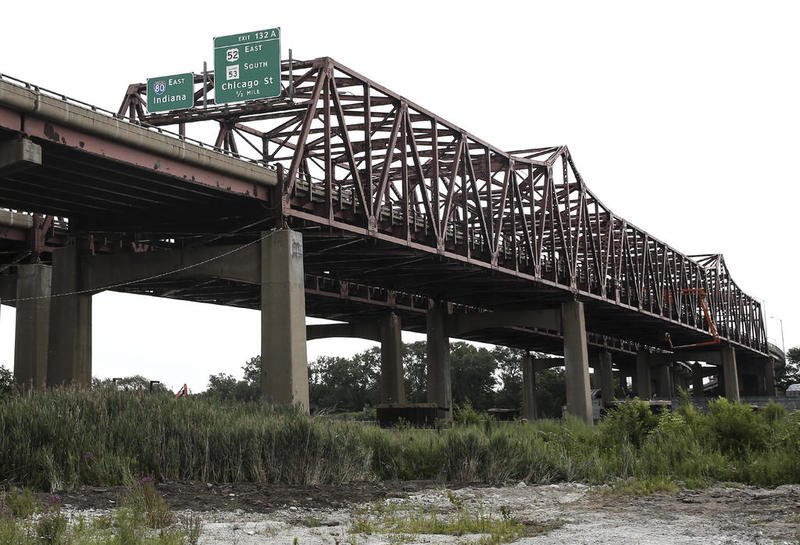State to begin inspecting I-80 bridges soon: IDOT
By Shaw Media
The Herald News
April 19, 2019
Regularly scheduled inspections of the Interstate 80 bridges over the Des Plaines River will begin Monday, April 29 in Joliet, ahead of larger repairs.
The Illinois Department of Transportation announced in a news release Thursday that state workers would begin the inspections April 29, weather permitting.
Daily lane closures will be required, starting with the westbound bridge until May 6, when inspections begin on the eastbound bridge. Inspections on both bridges are expected to be complete by May 11. The closures will take place between 8:30 a.m. and 2:30 p.m., Monday through Thursday and Saturdays, if necessary.
The inspections are being done in conjunction with an upcoming yearlong maintenance project on both bridges. Any additional issues will be addressed once construction begins this summer.
The larger project, which is under contract, involves steel repairs and bearing replacements. The process for building new parts has already begun, with work on the bridges expected to start in June or July.
The repairs will be taking place under both structures, with any necessary lane closures scheduled at night to avoid disrupting traffic during the daytime hours. The project will be finished next summer.
The twin I-80 bridges garnered attention earlier this year, when a CBS Chicago news story cited an IDOT inspection report from April 2018, which listed the westbound bridge superstructure as in “critical condition – may require closure.”
In unrelated work, IDOT will close the south sidewalk over the Jackson Street Bridge starting Monday. The sidewalk will remain closed for a couple of months. One sidewalk will remain open throughout the project.
Des Plaines Bridges News
State Plans Structural Overhaul Of I-80 Bridges Over Des Plaines River in Joliet
The state has made plans for making structural repairs on a couple of well-used bridges that need them.
A message from the I-80 bridge — get out the repair tools, Illinois
In what other state do highway billboards warn you to drive over a bridge at your own risk?
I-80 bridge in Joliet needs fixes, work slated for spring
The bridge on Interstate 80 that spans the Des Plaines River has garnered recent media attention after state inspectors in a report early last year described sections of it as “critical,” “intolerable” and a “high priority for replacement.”
Joliet Bridge Still Showing ‘Permanent Deformation’ Worrying Engineers
It’s a story we brought you first on CBS 2 about a bridge in Joliet with one of the worst structural ratings in the state.
State Rep. Walsh calls for emergency repairs to I-80 bridge
State Rep. Larry Walsh Jr., D-Elwood, released a statement Tuesday calling for emergency repairs to the Interstate 80 bridge over the Des Plaines River in Joliet.
IDOT insists I-80 bridge in Joliet is safe
The state on Thursday declared the Interstate 80 bridge over the Des Plaines River in Joliet is safe despite an inspection report describing sections as “critical,” “intolerable” and a “high priority for replacement.”
Deteriorating I-80 bridges at Joliet worry officials
The discovery of cracks in steel beams along Lake Shore Drive this week raised alarms about other problem bridges.
Think the shutdown of northbound Lake Shore Drive was bad? Will County bridges are even more alarming.
The discovery of cracks in steel beams along Lake Shore Drive this week raised alarms about other problem bridges.

